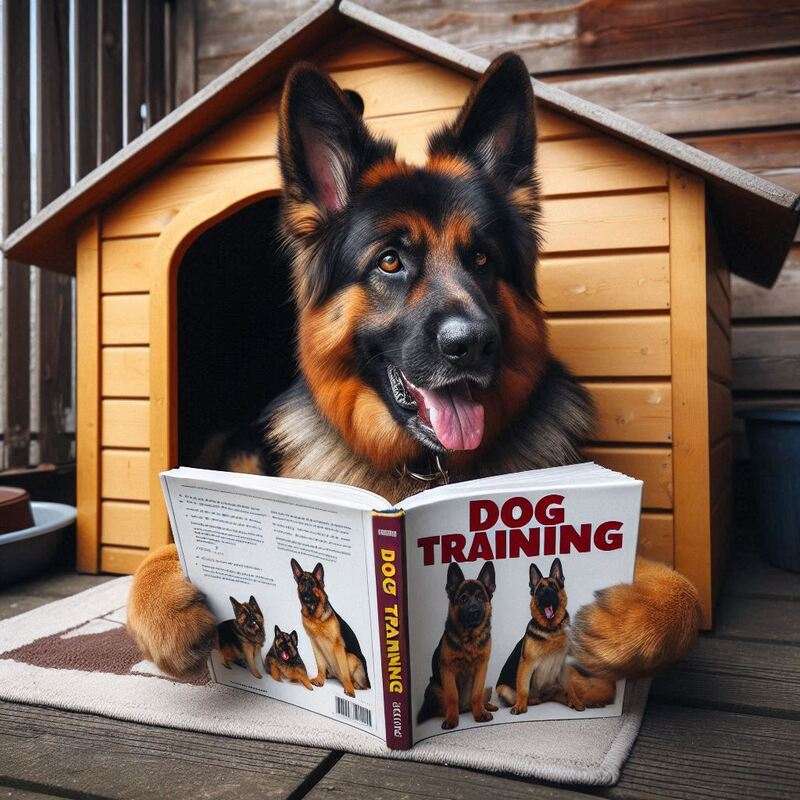Finding a good dog training book isn’t exactly like picking a thriller off a bookstore shelf. It’s… honestly, it’s a bit of a mess, because everyone seems to have written one these days. The options are endless, and it’s easy to get sucked into grabbing the book with the cutest puppy on the cover. But the right one—one that’s really gonna make a difference in how your dog responds—requires a bit more patience and discernment. You’re looking for something dependable, trustworthy, a guide you’d call a “best friend,” because, after all, that’s what your dog deserves, right?
Check out our recommendations below ↓

Table of Contents:
1. Trust Science, Not Superstition
A good dog training book? It’ll be grounded in science, plain and simple. Animal behavior studies, you know—real research. Books that casually throw in terms like “science-backed” or “behavioral psychology” have more meat on their bones, so to speak. (Avoid anything mystical. If you’re seeing terms like “dog whisperer” or “wolf pack” theory, run for the hills!) True, there are a few exceptions, but for the most part, look for positive reinforcement techniques based on real studies and decades of animal behavior research. The right science-based book can be your map through this journey.
2. Only Certified Experts Need Apply
Here’s where the gold standard sets in: certifications. Not all trainers are made equal, and not every so-called “trainer” should be selling advice. Look for authors with credentials like Certified Professional Dog Trainer (CPDT-KA), or if they’re a KPA Certified Training Partner (KPA CTP) or, ideally, a Certified Dog Behavior Consultant (CDBC). These aren’t just letters; they represent a level of professionalism and commitment that ensures their advice is grounded in actual training know-how, not the latest internet fad. If you can find a book by one of these credentialed experts, hold onto it.
3. Step-by-Step Dog Training Guidance, Not Just Theories
Oh, and another thing: theory is nice, but you want more than theory—way more. You need step-by-step guides that get into the nitty-gritty, because the last thing you need is vague advice that leaves you feeling lost. This is one area where some books really shine. Look for books with real-world examples and even little “What If” sections. What if your dog ignores you? What if they’re a little too clever for their own good? These are the kind of questions that a reliable book will answer—giving you not only knowledge but confidence.
4. Positive Reinforcement Should Be Front and Center
Positive reinforcement. It’s a term you’ll see a lot, maybe too much, but here it’s crucial. It’s all about rewards, not punishments—offering a treat instead of a stern reprimand, and it’s been shown time and again that dogs respond to this kind of training the best. Look for key terms like “force-free” or “reward-based” in the book description; if the author doesn’t seem to embrace this idea, they’re likely using techniques that could harm your bond with your dog.
5. Focus on Long-Term Solutions (Not Just Quick Fixes)
Training is not about instant results (though we all wish it were that simple, don’t we?). The best books are going to focus on helping you create a bond that’s solid, with behaviors that stick. Sure, maybe your dog will learn to sit quickly, but how about staying off the couch for the rest of their life? That’s the kind of long-term approach you want, not some “quick fix” that only works for a week before they go back to old habits.
6. Coverage of a Wide Range of Dog Training Needs
Let’s be real; a good dog training book will have you covered from puppy basics all the way to the trickier stuff—leash pulling, separation anxiety, maybe even barking at the mailman. If it’s the sort of book you can keep coming back to as your dog grows, or as new challenges pop up, then it’s really a top-tier resource. So look for books that take you from start to finish, not just those that specialize in a single problem. Think of it like your go-to recipe book—something with a little bit of everything.
7. Simple Language and Visual Aids Are a Must
Training dogs isn’t about impressing anyone with fancy terminology. The best books know how to get down to business, using clear, direct language. If they throw in photos (the more the better!) or charts to break down a complex technique, it’s even better. Not everyone’s a dog-training genius, and that’s okay; a good training book doesn’t assume you know everything from day one.
8. Get Recommendations from Real Trainers and Dog Communities
You don’t have to go on this hunt alone. Sometimes, the best insights come from trainers and other dog owners who’ve already tested the waters. There are plenty of online communities and forums where people swap advice about training resources. Reviews and recommendations can point you to gems that you’d miss just browsing a bookstore. Look for those high ratings from dog trainers who know the real deal.
Check out our recommendations below
9. Books that Dive Into Dog Psychology
Understanding *why* your dog does something—whether it’s barking, whining, or rolling around in dirt—is half the battle. Training isn’t just a list of commands; it’s understanding how your dog sees the world. Some books tap into this psychology, going beyond training to offer insights into canine instincts and emotional states. It might sound high-level, but believe me, knowing why your dog does what it does can help you tailor the training to fit them, not force them to fit into some ideal.
10. Choose Dog Training Authors Who Stay Updated
Dog training is like anything else—always evolving. Authors who are serious about their field know this and will update their books to include the latest research and insights. If you’re lucky enough to find an updated edition, or even an author who supplements their book with fresh, online content, you know they’re committed to giving you the best information out there. And that’s exactly the kind of guide you want on this journey.
Good Dog Training Book – Final Thoughts
It might seem like a lot, and maybe it is. But investing the time to find the right dog training book is one of the best gifts you can give to yourself—and your dog. It’s not about finding something perfect or fancy; it’s about finding something that works for you and keeps you motivated. A good dog training book is more than a guide; it’s a companion on the path to understanding and communicating with your dog. And when you find that book? It’s a game-changer.




